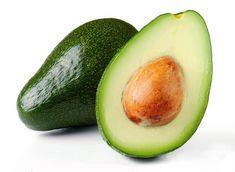
Avocados come in a range of shapes and varieties, but, in the UK market, customers have only had eyes for one in recent times - and that is Hass.
The variety is now well established, partly for its consistency and durability, says Robbie Taylor, fresh produce director with South African supplier HL Halls.
“Hass is hardier and easier to handle once it is ripe. It has a thicker skin so bruises less easily and once ripe it does not show the little skin blemishes as easily as Fuerte and other greenskin varieties.”
Those qualities mean the fruit remains popular in the UK, particularly with the retailers who want good looks and shelf-performance from their produce. But there are suggestions that Hass is not the be-all and end-all of avocados, and changes may well be afoot.
Taylor says: “A lot of people believe that Fuerte is a better eating avo, and I personally think a perfect Fuerte beats a perfect Hass every time. We do informal blind tastings and mostly get the same results.”
And he is not alone. Claus Lippert, chairman of the South African Avocado Growers Association, says while Hass represents 40 per cent of his country’s volume that may soon start to change.
“Hass is still the most popular, but we’re starting to find the supermarkets looking for other varieties. They’re all beginning to say they want something different from everyone else, so we’re expecting to see other varieties grow, which is good for us.”
Simon Curry, UK marketing manager with leading supplier Westfalia, says there is a need for change. “With the increasing supply of Hass, we are experiencing a need for differentiation in the market.
“Supermarkets are asking for something different to back this up. Westfalia believes that green skin avocados, giant and baby fruit can help keep and stimulate the consumers’ interest.”
The company’s research department, Westfalia Technological Services, is one of main players in developing avocado varieties, he says.
“WTS is particularly strong in the development, acquisition and testing of new cultivars from around the world, and run one of the most successful avocado rootstock breeding, selection and exchange programmes,” Curry says.
The organisation also maintains an extensive gene-bank of avocado varieties, says Stefan Kohne, general manager of WTS. “There’s huge concern that the many varieties in the world won’t exist for much longer, so we have developed a gene bank. We’ve been collating genes to help preserve some of the wide range of fruit out there.
“At the moment, the preferred variety is Hass, but will that still be the case in 100 years time? Tastes change, and if you want to breed new varieties, it’s best if you can breed out of a wider range.”
At the moment, the biggest area of work when it comes to new varieties is being done to improve the Hass offer.
Curry says: “Other research efforts are directed at early and late season strains of existing cultivars, the aim being to extend the season and to balance supply during this period.
“An example of this is Nature’s Hass, which is a late season, large avocado variety, which has already been available for a number of years and is well received by UK supermarkets.”
Kohne adds: “With regard to Hass, we have a number of things up our sleeve. Within that variety there is a preference for certain sizes, usually 14-16-18, so we need to condition the Hass trees and we’re putting a lot of effort into that to get a very good pack-out of those sizes. We’re looking for a more consistent pack-out and quality.”
They are not the only company looking to improve on the existing offer. Andre Ernst, a director of South African grower/exporter Afrupro, says: “I’m very interested in trying to find a better Hass. We do our own research and have developed an early Hass type.”
He says his company has already developed a new strain, called Maluma, which is an earlier Hass variety. “It’s at least four weeks earlier than normal Hass and it fruits very heavily. Another benefit is that it is not an alternate bearer, the tree recovers its energies in time for next season.”
Nurturing new varieties is not easy, he warns, and patience is important. “Developing new cultivars is a long-term thing. We’ve made mistakes in the past by trying to introduce new varieties too quickly. Pinkerton nearly dropped out because we brought it in too quickly. We have to be careful.”
Gabi Naamani, Agrexco’s fruit division and avocado manager, remains sceptical that Hass will ever be replaced. “There is no real variety after Hass. There are some green varieties which give better sizes and are more favoured, such as Pinkerton and Ardith, but the main efforts are being made to produce bigger Hass or to find similar varieties with better sizes.”
All of which takes time, he says: “To develop a new variety, from the beginning until it achieves commercial volume, takes more than 20 years.”
There is certainly interest in the UK market for varieties other than Hass, says Taylor, but the hard part is getting the fruit to market in good condition. However, with new technology on the horizon, that could be about to change.
“Disappointingly, we have problems with them through the cold chain, but it is interesting that some exporters have air-freighted them to the UK with excellent results.
“Our investigations into the use of CA and Smartfresh for storing fruit could well impact the way that these varieties travel, making them more commonly found on shelf, and in better shape,” he adds.



